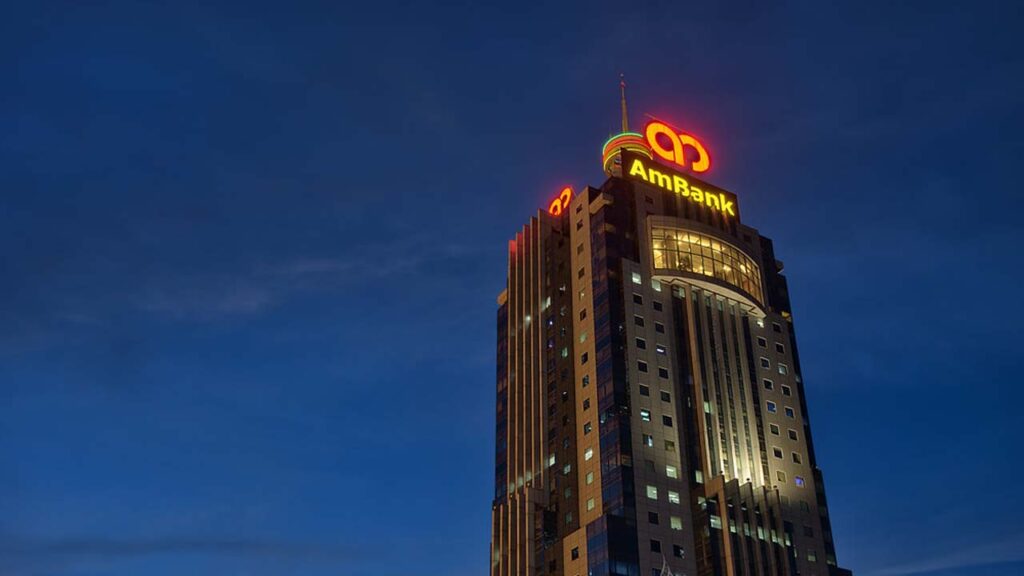SGDLoan.com – In Singapore’s dynamic property market, securing a commercial loan for real estate is a crucial strategy for investors and businesses aiming to expand their real estate portfolio.
Whether you are purchasing a retail shop, an office space, or embarking on a commercial construction project, understanding the financial aspects behind these loans is essential to maximise your investment returns and minimise risks.
This comprehensive guide will help you navigate the intricacies of commercial property financing in Singapore, covering loan types, interest rates, loan-to-value ratios, amortisation, and more.
What is a Commercial Loan for Real Estate?

Before diving deeper, it is essential to understand what a commercial loan for real estate actually is.
A commercial loan for real estate refers to financing that is specifically structured to fund properties used for business purposes rather than personal residence.
This includes a wide range of property types such as shopping malls, office towers, industrial warehouses, hotels, and mixed-use developments.
Unlike residential loans, commercial real estate loans typically involve more stringent approval processes, higher interest rates, larger loan amounts, and shorter repayment terms.
Furthermore, the approval for these loans heavily depends on the property’s ability to generate income, as well as the borrower’s business financial health and experience.
A strong understanding of the market trends and potential cash flows of the commercial property is often necessary to secure the best financing options.
Types of Commercial Real Estate Loans

Different types of commercial real estate loan types are available in Singapore to cater to the varying needs of investors and business owners.
Understanding each type helps in selecting the right financing option based on your specific goals and financial situation.
Here are the most common types:
- Traditional Commercial Mortgages: Offered by major banks such as DBS, UOB, and OCBC, these loans are suitable for businesses purchasing long-term investment properties. Loan tenures typically range from 5 to 25 years with competitive fixed or floating interest rates.
- SBA (Small Business Administration) Loans: Though less common in Singapore compared to the US, government-assisted schemes through Enterprise Singapore support SMEs in accessing loans with better terms, especially for business expansion into commercial properties.
- Bridge Loans: Short-term loans designed to provide quick financing until a more permanent solution is secured or the property is sold. They often come with higher interest rates but offer essential flexibility in fast-moving markets.
- Hard Money Loans: Private lenders offer these based on the property’s value rather than the borrower’s creditworthiness. Although the rates are higher, the approval process is faster, making them ideal for high-risk or urgent projects.
- Commercial Real Estate Construction Loans: Tailored specifically for funding the construction of commercial buildings. These loans release funds progressively as construction milestones are achieved, ensuring project financing is synchronised with development stages.
Each loan type serves different phases and needs of commercial property investment, making the correct selection vital to project success.
Commercial Real Estate Construction Loan Explained

Understanding commercial real estate construction loans is vital if you plan to build rather than buy an existing property.
A commercial real estate construction loan funds the costs involved in constructing a new property, from purchasing the land to building completion.
Unlike conventional loans, these loans disburse funds in stages according to construction progress to protect lenders from incomplete developments.
Lenders typically require:
- Detailed construction and architectural plans.
- A clear project timeline and milestones.
- A credible builder or contractor profile.
- Projected income analysis post-completion.
Borrowers usually pay interest only on the drawn amount during the construction phase.
Once the building is completed, the loan is often converted into a regular commercial mortgage or paid off through a balloon payment.
For instance, OCBC offers tailored construction loans in Singapore, particularly for developers focused on green-certified commercial buildings, aligning with the city’s sustainability goals.
Understanding Commercial Real Estate Loan Interest Rates

When applying for a commercial loan for real estate, understanding the commercial real estate loan interest rate is crucial for effective financial planning.
Interest rates for commercial property loans in Singapore are influenced by several key factors:
- Economic Climate: General economic conditions and MAS (Monetary Authority of Singapore) monetary policies directly impact borrowing costs.
- Creditworthiness: A business’s financial health, including its cash flow and profitability, significantly determines the rate offered.
- Property Characteristics: Properties located in prime districts with high demand are often eligible for lower rates compared to those in less desirable locations.
- Loan Tenure and Structure: Shorter tenures may offer lower rates but require higher monthly repayments.
Typically, commercial loan interest rates in Singapore range between 3.5% and 5.0% in 2025, depending on market conditions and lender assessments.
Borrowers should also decide between:
| Interest Rate Type | Description |
|---|---|
| Fixed Rate | Interest rate remains constant throughout a specified period, offering payment predictability. |
| Floating Rate | Rate fluctuates with benchmark rates such as SORA (Singapore Overnight Rate Average), providing potential savings or risk. |
Choosing between a fixed or floating rate structure depends largely on your risk appetite and market outlook.
How Commercial Real Estate Loan to Value (LTV) Works

The commercial real estate loan to value (LTV) ratio is another critical element when considering a commercial loan for real estate.
The LTV ratio expresses the loan amount as a percentage of the property’s appraised value or purchase price, whichever is lower.
Understanding the LTV can help you plan better financing strategies and determine how much equity investment is required.
In Singapore, commercial property LTV ratios typically fall between 60% and 80%, depending on the borrower’s credit profile and the property’s nature.
Here’s how LTV affects your financing:
| LTV Ratio | Borrower’s Equity | Risk Assessment |
|---|---|---|
| High (75%-80%) | Lower initial equity required | Higher lender risk, possible higher interest rates |
| Moderate (60%-74%) | Moderate equity injection | Balanced risk, better loan terms |
| Low (<60%) | High equity from borrower | Lower lender risk, best possible terms |
To secure a higher LTV:
- Maintain strong business and personal credit ratings.
- Opt for properties in well-established commercial zones.
- Present comprehensive business and revenue projections to lenders.
Being strategic about the LTV can significantly impact your ability to leverage investments while managing financial exposure.
Commercial Real Estate Loan Amortization

Commercial real estate loan amortization refers to how the loan’s principal and interest are paid off over time.
Amortisation affects your monthly cash flow, total interest costs, and investment strategies.
The two primary amortisation structures are:
- Full Amortisation Loans: Monthly repayments cover both interest and principal in equal instalments, ensuring the loan is fully repaid at the end of the term.
- Balloon Payment Loans: Monthly repayments may cover only interest or small portions of the principal, with a large lump sum due at the end.
Choosing the right amortisation structure is crucial based on your cash flow situation and exit strategies.
For instance, if you plan to refinance or sell the property before the balloon payment is due, a balloon structure could optimise your cash flow early in the project.
However, full amortisation provides stability and predictability, making it suitable for risk-averse investors.
Factors to Consider Before Applying for a Commercial Loan

Applying for a commercial loan for real estate is a significant financial decision requiring thorough preparation.
Several important factors should be considered:
- Financial Strength: Ensure both your business and personal financial documents are updated and present a strong case to lenders.
- Property Assessment: A professional valuation is critical not only to determine loan amounts but also to identify potential risks and opportunities.
- Understanding Terms and Costs: Scrutinise the full loan agreement, noting interest rates, LTV ratios, amortisation schedules, prepayment penalties, and administrative fees.
- Lender Reputation and Support: Choose banks or lenders known for supporting commercial borrowers with flexible terms and proactive customer service.
A well-prepared borrower profile not only increases approval chances but also improves bargaining power when negotiating loan terms.
How to Apply for a Commercial Loan for Real Estate in Singapore
Successfully securing a commercial loan for real estate involves a structured approach.
Follow these essential steps:
- Evaluate Your Financing Needs: Clearly define your purpose, required amount, and timeline.
- Research and Compare Lenders: Look at commercial loan offerings from institutions like DBS, OCBC, UOB, and trusted private lenders.
- Prepare Comprehensive Documentation: This typically includes:
- Business financial statements.
- Bank statements.
- Tax returns.
- Property details (valuation reports, tenancy agreements, if applicable).
- Submit a Complete Loan Application: Ensure all forms and documents are complete and correct to avoid delays.
- Negotiate and Review the Offer: Carefully assess interest rates, fees, and loan conditions before accepting.
- Complete Legal Requirements and Disbursement: Work with legal professionals to finalise documentation before the funds are released.
Establishing a strong relationship with your lender can also be beneficial for future financing needs.
Expanding your portfolio with a commercial loan for real estate in Singapore offers immense potential but requires a deep understanding of the financing environment.
By carefully selecting loan types, negotiating favourable interest rates, managing LTV strategically, and planning your amortisation approach, you can ensure a sustainable and profitable investment journey.
For up-to-date guidelines and best practices, always consult with major banks and refer to regulatory updates from the Monetary Authority of Singapore to stay ahead in the competitive property market.









